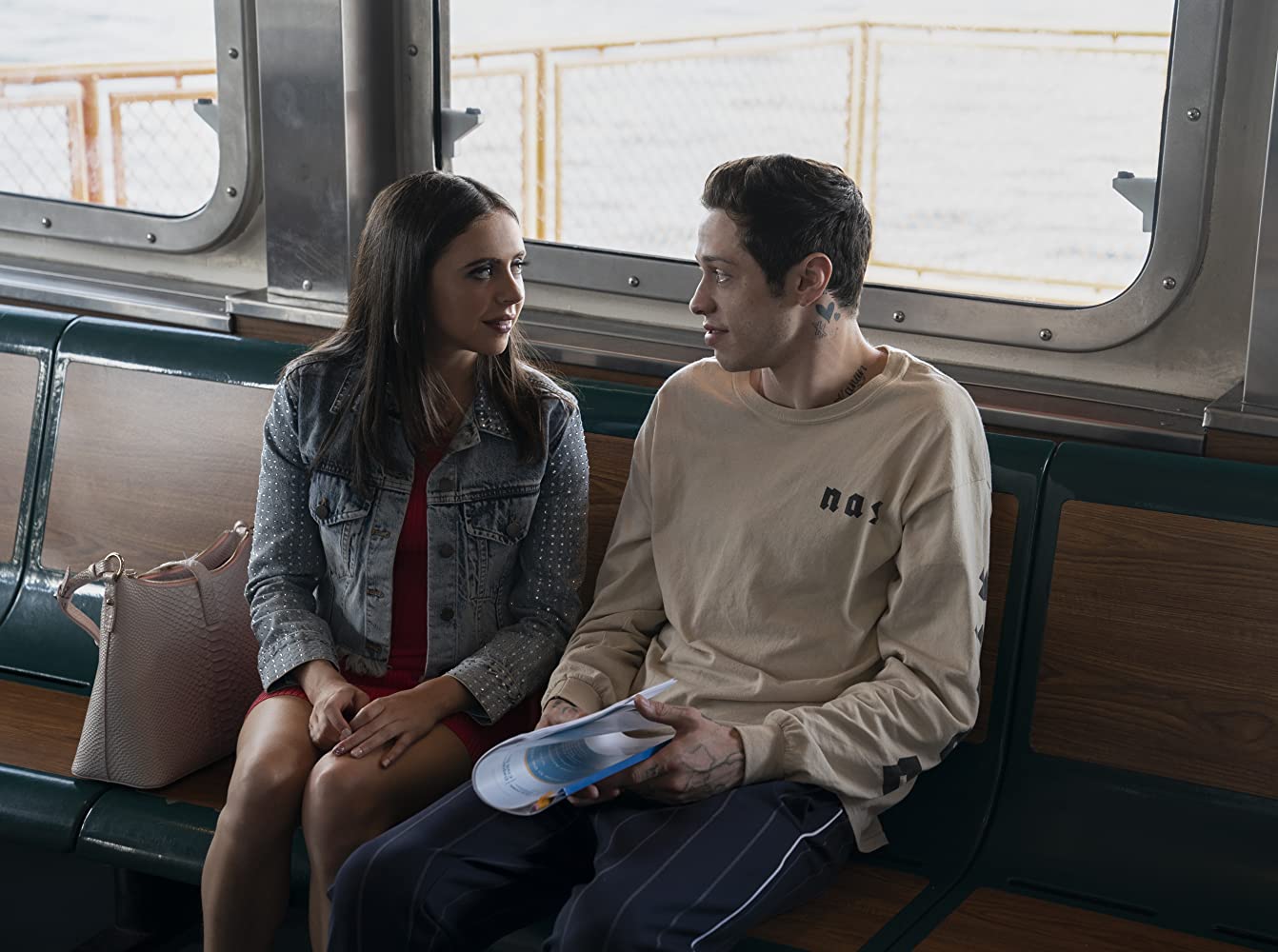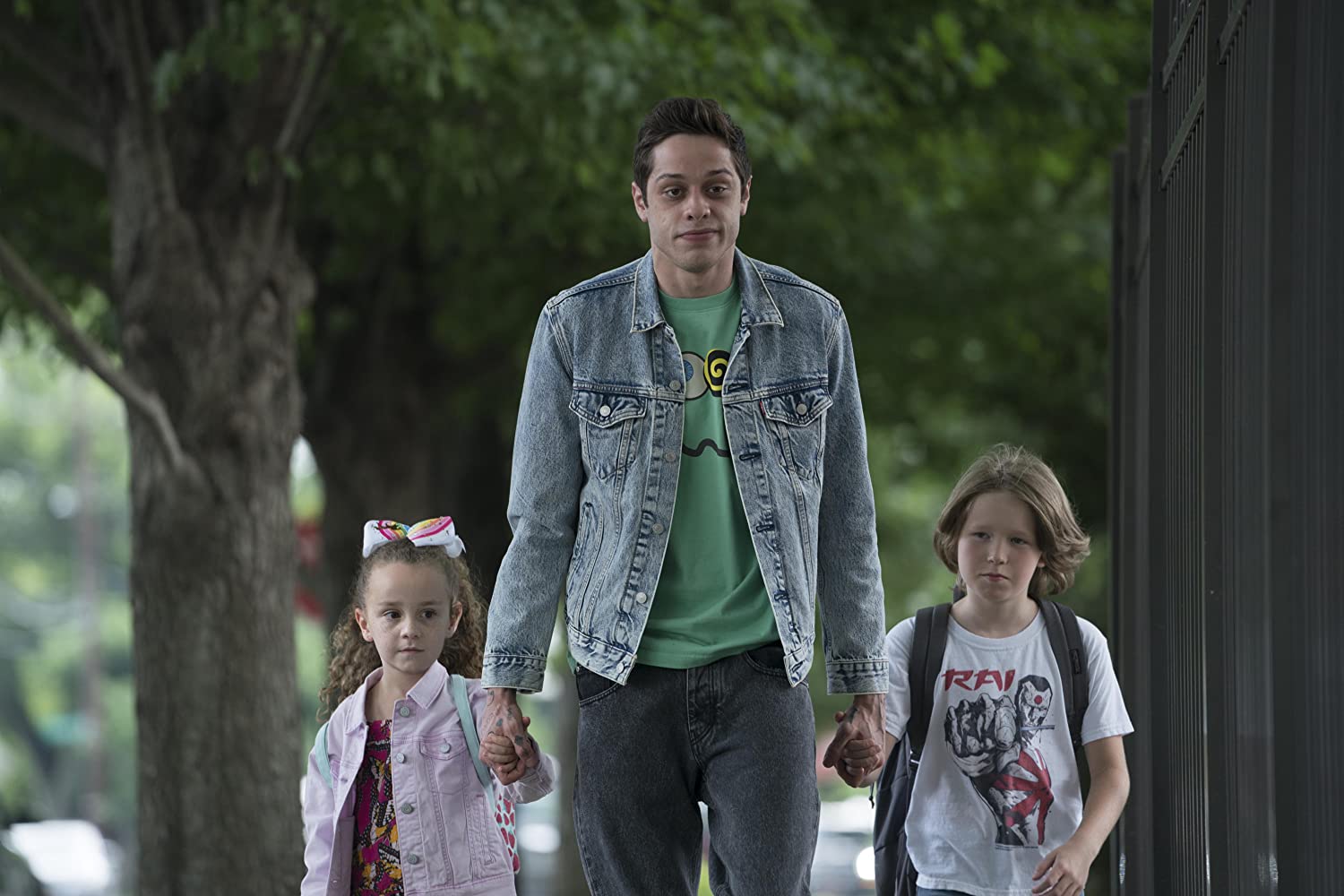By Lauryn Clarke, Second Year, History
Loosely based on star Pete Davidson’s life, The King of Staten Island (2020) explores how a combination of grief, hero worship and expectation can alter a person’s life view with far-reaching consequences.
Director Judd Apatow returns with his signature blend of comedy, honesty and awkwardness in this semi-autobiographical film based on Pete Davidson’s life. It plays with the idea of perceptions – the perceptions of his deceased fireman father (killed in a hotel fire, unlike Davidson’s real father who died in 9/11, to whom the film is dedicated); perceptions of self-achievement, and perceptions of Staten Island itself, which the star has a mixed relationship with, as seen here in an SNL appearance.
For the majority of the movie, Davidson’s character Scott flicks between being sympathetic to being distinctly unlikable – you want to root for him so badly but sometimes he comes off as a petulant man-child which makes it incredibly hard; you feel the frustration of his mother Margie (Marisa Tomei).
The ensemble cast are excellent: comedian Bill Burr as Ray provides something of a catalyst for moving the story forward and his scenes with Davidson feel authentic. The child actors are better than most and watching them interact with Scott provides light moments of joviality in the film to cut between scenes of tension or awkwardness.
The film has a raw and honest portrayal of mental health, something Davidson has become somewhat of an advocate for in his personal life, being transparent about his battle with borderline personality disorder, depression, and anxiety.
There are several moments in the film that are uncomfortable to watch with regard to mental illness but give the film a stark dose of realism that people who struggle with mental illness will recognise – including a memorable scene where in response to her asking if he is going to hurt himself Scott responds ‘yeah probably’ in a jovial tone to make light of the answer. This move may be familiar to some.
This film is about perception: Scott’s perception of his father in his grief, his perception of his ability to achieve anything in his life, and the perception of Staten Island from within and from outsiders.
Scott sees his father through rose-tinted glasses, as an unflawed hero whose memory he cannot live up to and wonders whether his father would be disappointed in his current life path which mainly revolves around giving hit-and-miss tattoos to his friends and smoking lots of marijuana.
Scott sees his father through rose-tinted glasses, as an unflawed hero whose memory he cannot live up to
Everyone in Scott’s life seems to hero-worship his father, too, and this provides somewhat of a stumbling block in Scott’s sense of grief and understanding; an excellent scene towards the end of the movie sheds light on the issues with this and how remembering people as flawless can be problematic for all involved.
The perception of Staten Island is examined through Scott’s friends, through his on-again-off-again partner Kelsey (Bel Powley) who wants to become a city planner and help develop Staten Island into a popular and thriving area, throwing out examples like Williamsburg or Brooklyn, and his other friends who think of the area with distain but are comfortable to live there despite viewing it as a dump.

At the start of the film, the camera work is all small, dark rooms and overgrown weeds, but by the end of the film there are beautiful wide shots and lighter scenes. Robert Elswit provides beautiful imagery, including a gorgeous shot of the ferry ride from Staten Island to Manhattan that could make you smile all on its own.
The King of Staten Island showcases the classic style of Judd Apatow blended with the dry comedic style of Pete Davidson and would definitely be a recommendation for an afternoon watch (lockdown or not).
Featured: Mary Cybulski, Universal Pictures
Are you a fan of Pete Davidson? Let us know!








